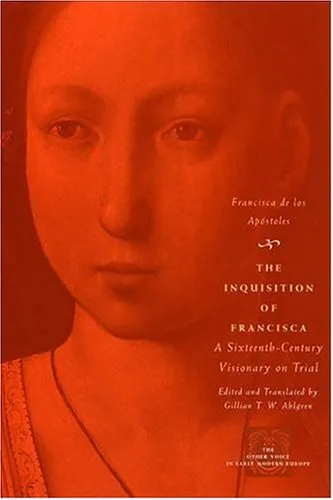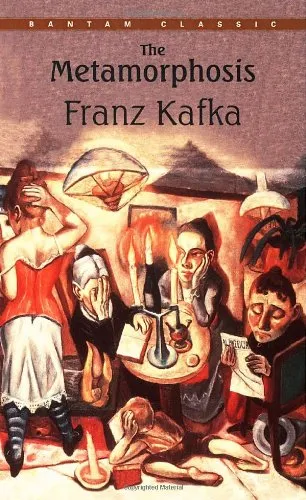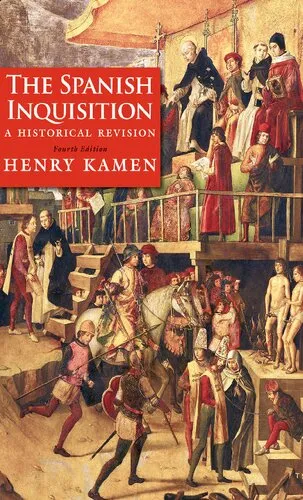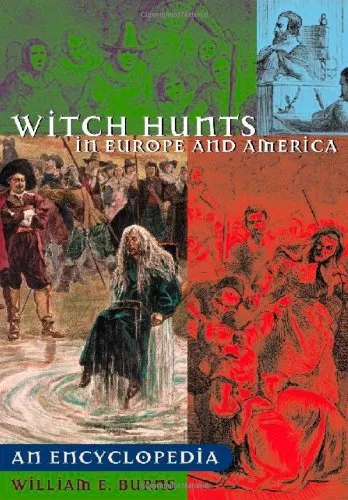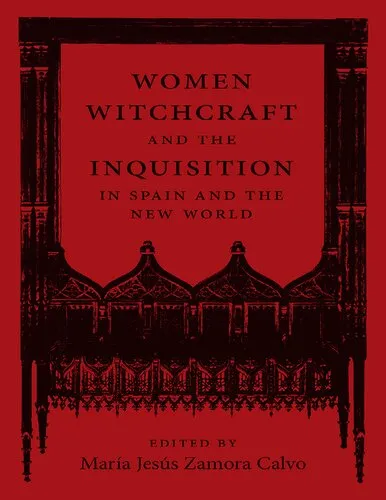The Inquisition of Francisca: A Sixteenth-Century Visionary on Trial
3.8
Reviews from our users

You Can Ask your questions from this book's AI after Login
Each download or ask from book AI costs 2 points. To earn more free points, please visit the Points Guide Page and complete some valuable actions.کتاب های مرتبط:
Persian Summary
The Inquisition of Francisca: A Sixteenth-Century Visionary on Trial
An introduction to the compelling story of Francisca, a visionary woman whose mystical experiences brought her to the attention of the Spanish Inquisition. This book unravels the intersecting complexities of faith, gender, and power during a turbulent historical period.
Detailed Summary of the Book
The book "The Inquisition of Francisca: A Sixteenth-Century Visionary on Trial" delves into the extraordinary life of Francisca de los Apóstoles, a woman living in Spain during the late 1500s, whose visionary experiences and religious fervor captured the attention of the infamous Inquisition. Set against the backdrop of post-Reformation Europe, where religious orthodoxy was vigorously enforced, Francisca’s story offers a window into the lives of those who dared to challenge established norms and sought personal encounters with the divine.
Through a detailed examination of the Inquisition trial records, this book reconstructs Francisca's bold attempts to redefine spiritual authority by stressing her direct communication with God. Her visions, however, were seen as subversive and suspect in a deeply patriarchal society. The narrative highlights the intense scrutiny she faced when her revelations posed a perceived threat to ecclesiastical and social order. The trial documents reveal not only the mechanisms of control employed by the church but also the resilience and courage of individuals who stood firm in their convictions despite the risks involved.
Key Takeaways
- The book unveils the intricate methods used by the Inquisition to suppress what it considered heretical, portraying the dangerous intersections of faith, authority, and gender.
- It sheds light on the historical context of sixteenth-century Spain, emphasizing how social and religious movements shaped individual destinies.
- Francisca's story is a testament to personal courage and the human spirit's quest for truth, which can inspire readers navigating the complexities of faith and identity today.
Famous Quotes from the Book
"In a world dominated by the voices of men in power, a solitary woman's claim to divine communication was nothing short of revolutionary."
"Courage does not silence fear; it ignites a fire within that fuels the relentless pursuit of justice and truth."
Why This Book Matters
This book is significant as it highlights the often overlooked narratives of women in history who have played crucial roles in spiritual and social movements. Francisca's story resonates with contemporary readers as it echoes ongoing dialogues about gender, authority, and the right to personal spiritual experiences. Her trial and the challenges she faced serve as a powerful reminder of the struggles faced by those who venture beyond accepted societal boundaries.
Furthermore, "The Inquisition of Francisca" offers an in-depth examination of the workings of the Spanish Inquisition, a historical entity whose legacy of intolerance and persecution continues to inform modern discussions about religious freedom and human rights. In exploring this unique case, readers gain insights not only into past injustices but also into present-day challenges, making the book a timeless resource for understanding the dynamics of faith, power, and resistance.
Free Direct Download
You Can Download this book after Login
Accessing books through legal platforms and public libraries not only supports the rights of authors and publishers but also contributes to the sustainability of reading culture. Before downloading, please take a moment to consider these options.
Find this book on other platforms:
WorldCat helps you find books in libraries worldwide.
See ratings, reviews, and discussions on Goodreads.
Find and buy rare or used books on AbeBooks.
1516
بازدید3.8
امتیاز0
نظر98%
رضایتReviews:
3.8
Based on 0 users review
Questions & Answers
Ask questions about this book or help others by answering
No questions yet. Be the first to ask!
